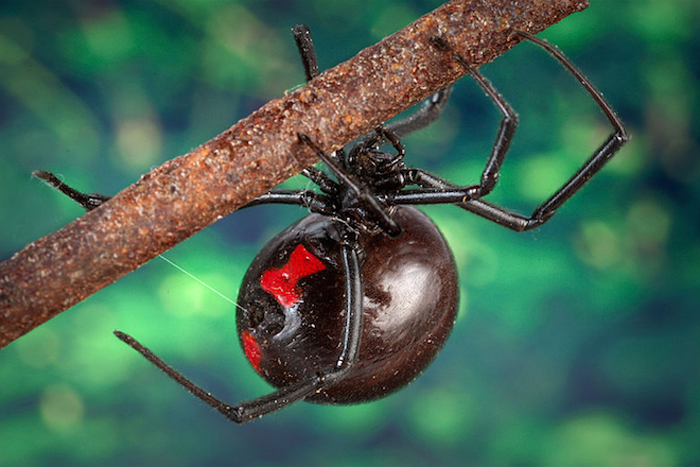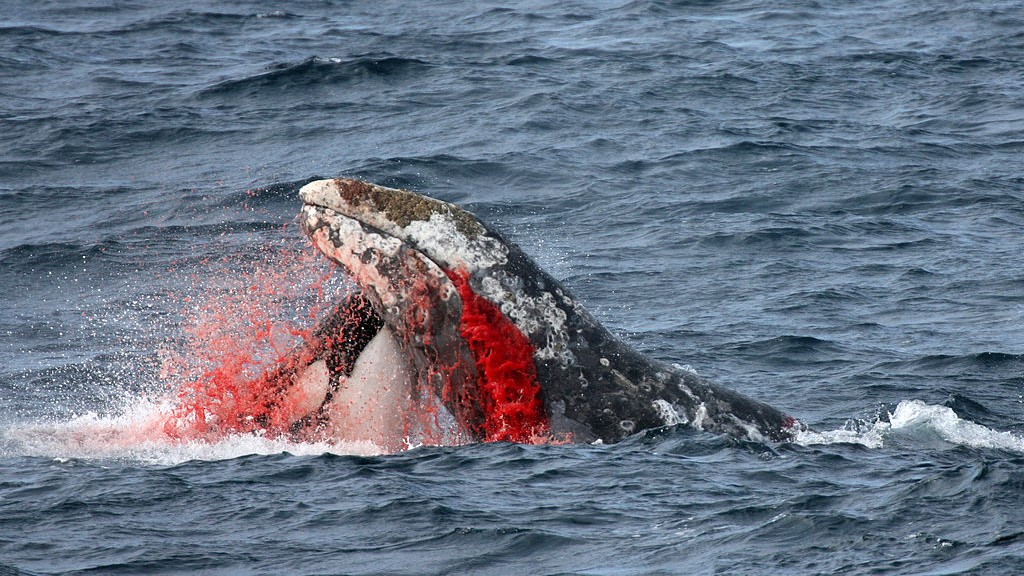Man Gets Black Widow Spider Bite. Then He Can't Pee.

There's a whole range of reasons you don't want to be bitten by a black widow spider, but you probably wouldn't think that losing the ability to pee is one of them.
But that's what may have happened to a man in Canada. After he got a suspected black widow bite on his foot, he developed a condition called acute urinary retention, meaning he couldn't pee despite having a very full bladder, according to a recent report of his case.
The 50-year-old encountered the spider while he was walking through tall grass at his cottage in southern Ontario, the report said. Black widow spiders are rare in Canada because the arachnids are typically found in warmer climates; however, climate change may be driving the spiders farther north, Live Science reported in August.
The man didn't think much about the bite when it happened: When he felt it, he quickly brushed away what he believed to be a black spider, said lead case report author Dr. Matthew Carere, who treated the man while he was an emergency room physician at The Ottawa Hospital (Carere is currently an emergency room physician in Victoria, Canada.) [27 Oddest Medical Cases]
But two hours later, the man felt excruciating pain in his foot. And by the next morning, the pain was so severe — and he had also developed cramps in his abdomen — that he went to the emergency room. Doctors there thought his abdominal pain was caused by kidney stones and suspected the spider bite was just a coincidental occurrence, Carere told Live Science, and the man was sent home.
However, he returned later that day because his abdominal pain had worsened, so doctors sent him to a larger hospital for additional testing.
Range of symptoms
By the time the man arrived at the emergency room where Carere treated him, he was in a lot of pain and sweating heavily, and both of his eyelids were swollen. His blood pressure was extremely high and a CT scan revealed that his bladder was massively distended, according to the case report.
Get the world’s most fascinating discoveries delivered straight to your inbox.
The man also told doctors about the spider bite, but after carefully examining his skin, they found no evidence of a bite or rash. However, despite the lack of a mark, doctors suspect the man was bitten by a northern black widow spider, a species found in southern Ontario.
The venom from a black widow spider contains a variety of toxins that may have been responsible for the man's range of symptoms following the bite. Black widow venom causes a medical syndrome known as "latrodectism," which can include symptoms such as high blood pressure, heavy sweating and muscle pain, Carere said. The toxins found in the venom contain enzymes that cause a flood of neurotransmitters, which are chemicals that transmit signals from one neuron to the next, as well as vasodilators, which are substances that widen blood vessels and increase blood flow. [Spider-Man: 5 Weird Effects of Real Spider Bites]
The release of one such neurotransmitter, called acetylcholine, may be one reason why the man developed urinary retention and had difficulty peeing after the spider bite, Carere said. He also noted that another factor may have been the man's age: The 50-year-old likely had some sort of underlying benign prostatic hyperplasia, or enlarged prostate.
Carere noted that the doctors can't definitively prove that the spider bite was the cause of the man's urinary retention. Indeed, they couldn't find any previous cases of this happening in the medical literature.
The man was hospitalized for two days so that doctors could insert a catheter to drain urine from his full bladder and get his elevated blood pressure and pain under control. By the time he went home, he was able to pee without any problems.
The case was published in July in the Canadian Journal of Emergency Medicine.
- Creepy, Crawly Incredible: Photos of Spiders
- 5 Ways Climate Change Will Affect Your Health
- 5 Weird Effects of Bug Bites
Originally published on Live Science.
Cari Nierenberg has been writing about health and wellness topics for online news outlets and print publications for more than two decades. Her work has been published by Live Science, The Washington Post, WebMD, Scientific American, among others. She has a Bachelor of Science degree in nutrition from Cornell University and a Master of Science degree in Nutrition and Communication from Boston University.


